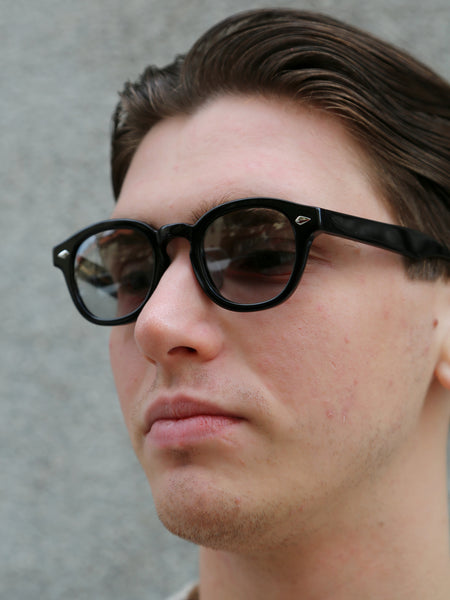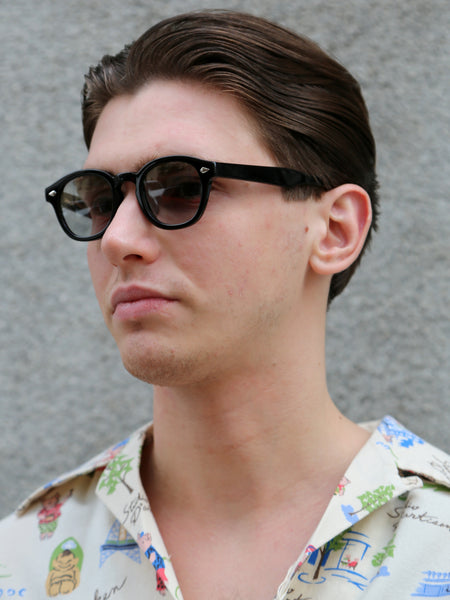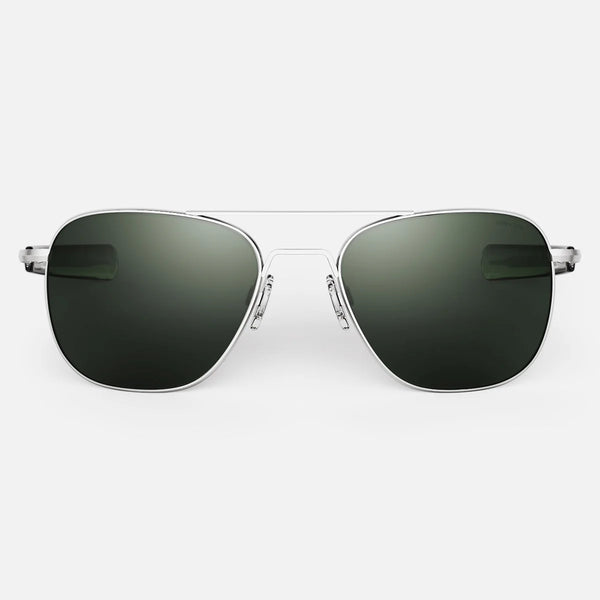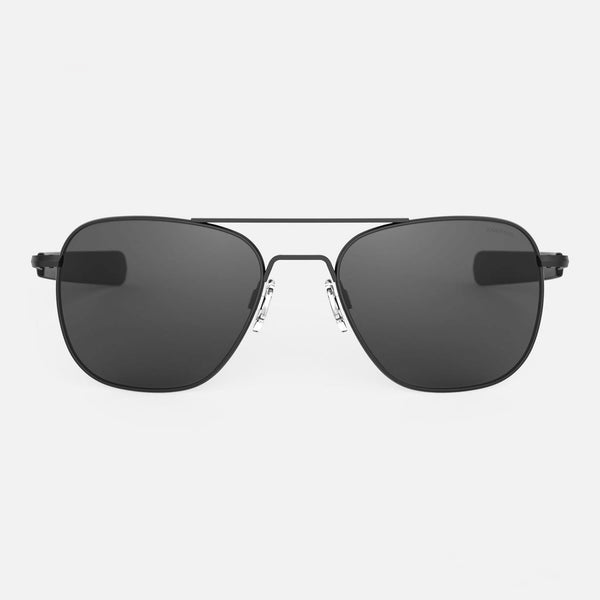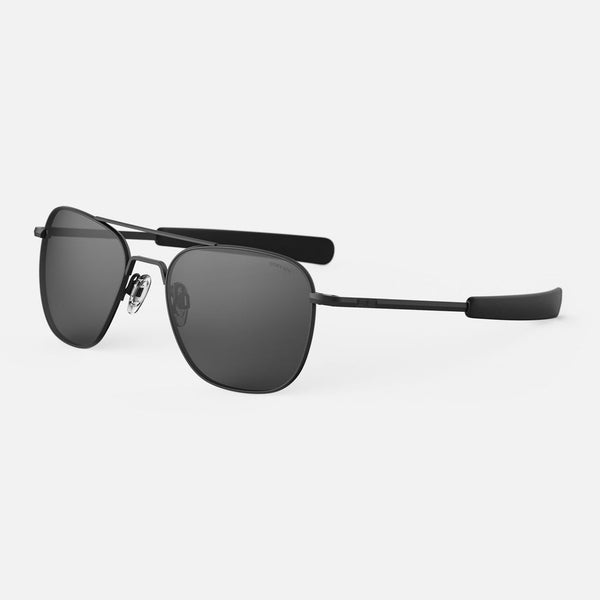THE REAL McCOY'S Geyser Sunglasses Black/Green MA24002
12.800,00 Kč
This product is currently sold out.
THE REAL McCOY'S Geyser Sunglasses Black/Green (MA24002)
The "MA24002 Geyser Sunglasses" by The Real McCoy's are based on the model worn by President John F. Kennedy. A popular American design of the 1950s and 1960s with black or tortoiseshell celluloid frames and tinted lenses.
Celluloid was developed in the 1860s and 70s as an alternative to ivory and was the first synthetic plastic ever produced. Celluloid frames have several advantages over today's acetate frames: they are lighter, have a shiny surface and do not deform with wear. Today, there are only a few factories in Japan that produce the sought-after material.
- MA24002 GEYSER / BLACK FRAME 160 GREEN
- Handmade in Japan
- Celluloid frame
- Glass Lenses
- Glass color: Green
- Leather case
- Frame: Black
- OSFA / One Size
The GEYSER / BLACK FRAME adopts a silhouette reminiscent of President Kennedy's visit to Fort Bragg in 1961 and his distinctive nautical dressing observed during his sailing excursions on his boat Victura, where he’d often be seen pairing sunglasses with a Type G-1 and khaki slacks - the G-1 calling back to his own time as a Navy Officer. Crafted in a mid-century style, this frame is hand-moulded from celluloid and finished with glass lenses.
The American military pioneered eye defence technology for the air force, replacing goggles with sunglasses as a light weight alternative. In 1929 the first celluloid sunglasses were introduced to the American market through a creative transformation of injection moulding facilities previously dedicated to a faltering women's wear manufacturer. Utilising nitrocellulose as its primary component along with cotton, pulp, and other fibres, constituting 70% of its composition, celluloid sunglasses, enhanced with camphor, made a transformative impact. Available on the beaches and boardwalks of Grand West, New Jersey, these sunglasses quickly captivated the public, achieving widespread popularity.
Celluloid, once dry, displays remarkable stability, enabling the creation of intricate shapes that sustain the frame's structural integrity, even without the presence of metal leg cores.
As time has passed, the manufacturing of celluloid sunglasses has witnessed a decline, leaving a limited number of producers. The majority of these manufacturers are now concentrated in Japan, where the tradition of hand moulded celluloid frames is preserved and continues to be in high demand.












